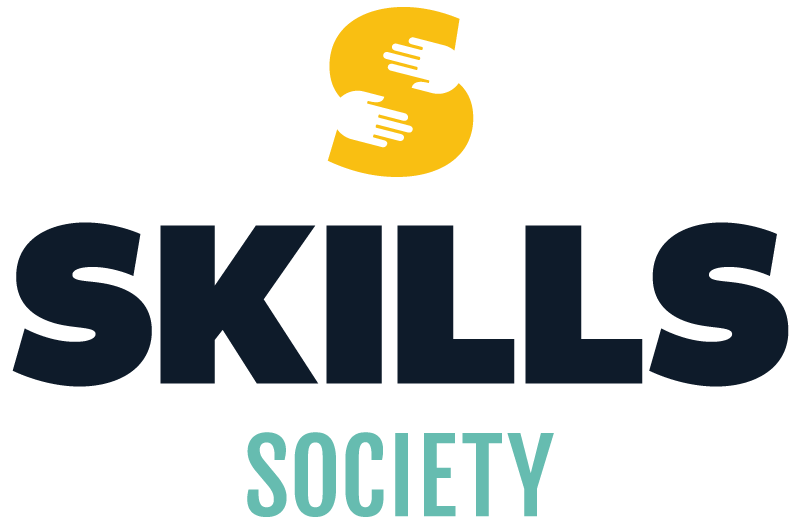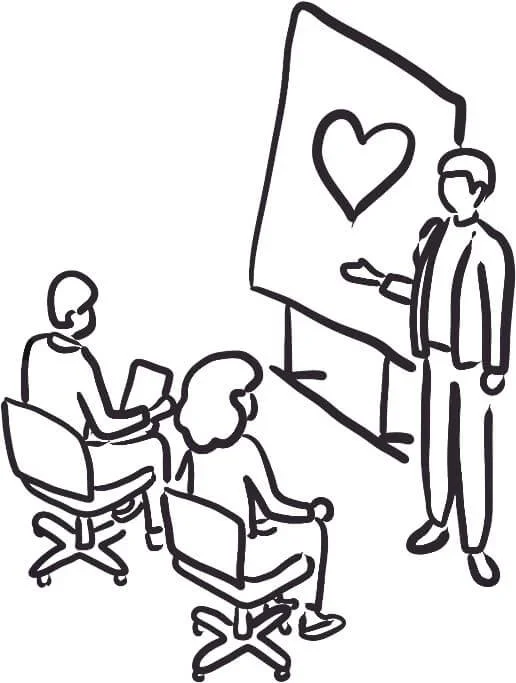It’s the Little Things - Everyday Actions That Uphold the Community Living Movement
The Community Living Movement, emerging in the 1970s, was built on powerful, fundamental ideas, like rights, dignity, and inclusion. These ideas are expressed in many ways today through institutional changes, such as access to education and participation in community life, that resulted from this advocacy. And while much progress has been made, what is equally important is how these values and rights are affirmed, upheld, and carried forward in everyday actions and moments.
As supports in the lives of people with disabilities, not only does it matter what we support, like access and inclusion, but also how. The way we show up matters. As Open Futures Learning, partners in this work, remind us, it’s the little things. Those small, relational actions that affirm person-centredness, uphold autonomy, and foster deep belonging.
We had the opportunity to connect with Cameron Pierce, Manager of Positive Practices. Here, Cameron shares his reflections on the legacy of the community living and disability rights movements, and how striving to support the good life shows up in the everyday work of community supports.
Disability Rights and Community Living - A Movement, Not a Moment
“Never settling and always striving for the good life in our day-to-day work is looking for opportunities to magnify our lens of person-centeredness and positive practices in the lives of those we serve.”
—Cameron
At its core, positive practices are an approach to support that recognizes each person’s individuality and works towards meaningful outcomes that enhance overall quality of life through trust and relationships. Cameron reminds us that positive practices are not new - they are deeply rooted in the history of disability rights and community living. While using positive, person-centred, and relational approaches may now seem obvious to most, it wasn’t long ago in Alberta’s history that this was not always the case. The disability rights and community living movements emerged as a response to institutionalization, and to systems - particularly medical systems - that unjustly claimed authority over what the ‘good life’ should be for people with disabilities. Knowing and understanding this history is an important part of our practice to ensure we continue to uphold and affirm disability rights.
“We need to be careful that even well-intentioned actions and supports can become controlling, restrictive, or invasive,” Cameron notes. “We should support people in having choice and control over their own lives.”
Cameron highlights four ethical principles from a positive approach that continue to guide community support work, informing decision-making and action:
Respect for the dignity of persons
Responsible caring
Integrity in relationships
Social responsibility
“It is important to recognize that the individual is the one to define what ‘the good life’ is for them.”, Cameron shares. “Our work should remove as many barriers as possible and support individuals in building the life they want for themselves.”
Dignity of risk
Sometimes, out of a desire to keep people safe or protected, opportunities to make decisions and take risks are unintentionally limited. A common misconception is that the good life is one without failure or hardship, but this isn’t true. A good life often includes opportunities to take risks, try new things, make mistakes, fail, learn, and grow.
Cameron reminds us that positive practices require both respect for the dignity of persons (maximizing rights) and responsible care (support that helps ensure safety and well-being). These are not opposing ideas, but rather interconnected. Responsible care doesn’t mean avoiding risk altogether. Rather, it is building support within relationships and networks of trust, ensuring the individual has people who love and care about them and who are willing to help them as they try.
Dignity of risk is about recognizing that people with disabilities have the same right to growth, adventure, and self-determination as anyone else. When systems frame limits on people’s autonomy as being “for people’s safety”, we must pause and critically reflect. “There is no such thing as responsible caring without respect for the dignity of persons,” Cameron shares.
“Societal forces may try to persuade people that moving backwards is about responsible caring,” Cameron cautions. “But that idea must be rejected.”
The small (not so small) things
Relationships and actively listening
The way we show up and be alongside people truly matters. Starting from a place of relationship, genuine curiosity, and care is foundational to our work. But it’s more than just asking questions - it’s about listening deeply, not just with our ears but our whole being.
“Take note of what people are drawn to,” Cameron suggests. “What do they gravitate towards? When do they smile or laugh? When do they seem immersed in what they’re doing?” These small observations help us learn what matters to someone and support them in building meaningful experiences. Cameron highlights one example, “I might observe that when someone I’m supporting makes a new friendly acquaintance in the community, they smile a lot and talk about the experience throughout their day. Now I know more about what is important to them and how to support them in having a good day.” Going further, we might support return visits to that space, facilitate further participation, and nurture that spark of connection. “When we really take an interest in what a person is sharing, when we actively listen and relate to people, they feel less alone” Cameron shares. “Belonging is the opposite of isolation.” Supporting people to engage with others and build relationships - these are the little things that can make a big difference.
Words matter
Language shapes how people see themselves and what they believe is possible. Words can open up possibilities and support people to make choices and feel empowered, or they can limit and control. Cameron highlights how even well-intentioned language can reflect unequal power dynamics and limit someone’s sense of agency.
It’s about upholding the rights of people with disabilities to direct their own lives, and this shows up in our everyday interactions. He gives an example: imagine someone wants to go to the movies but doesn’t currently have the funds, saying “You can’t go, you don’t have enough money. Why don’t you watch a movie on TV instead?”, closes off the person’s choice and shifts control away from them. Instead, saying, “Going to a movie sounds like a great idea! Do you want to figure out when you’ll have enough money to go?” respects the person’s vision, reinforcing that their interests matter and invites planning and possibility.
Words like no, can’t, and don’t often reflect decisions made for someone, rather than with them. Shifting to language that invites partnership and upholds agency is an everyday practice that supports dignity, choice, and rights.
Staying curious and present
The good life isn’t static - it’s continually evolving, just as people are dynamic and changing. What was important to someone two years ago may no longer hold that same meaning today. “We need to resist the urge to become complacent,” Cameron reminds us. “We need to stay curious.” The practice of staying curious about someone’s evolving hopes, interests, and identity is a daily act of respect and affirmation of rights.
Practices That Carry the Movement Forward
It can be easy to think of movements as moments in history. However, the disability rights and community living movements are ongoing. They live in our advocacy and systems change efforts. And, they live in the way we show up - with curiosity, care, and a commitment to never settling. Cameron’s reflections remind us that it’s how we listen, how we speak, how we notice what matters to someone, and how we hold space for them to define and pursue the good life that helps carry these movements forward.
This piece was compiled and written by Rebecca Rubuliak, Director of Continuous Improvement and Innovation


